Graduate Associates

Michelle Amri
Michelle Amri is a PhD candidate in Social and Behavioural Health Sciences at the Dalla Lana School of Public Health and a Fellow of the Collaborative Specialization in Global Health. Working under the supervision of Drs. Arjumand Siddiqi and Theresa Enright, her research is focused on global policy around urban health and inequality. Her pursuit of doctoral studies builds on her experiences working in healthy public policy, particularly at the World Health Organization, where she was a Consultant working on evaluating the Healthy Cities Project in the Western Pacific Region. Her doctoral work is funded by the Canadian Queen Elizabeth II Diamond Jubilee Advanced Scholars Program (funded by SSHRC and IDRC) (2018) and the Ontario Graduate Scholarship (2018-2019). She holds degrees of Honors Bachelor of Health Sciences (Specialization in Health Promotion) from the University of Western Ontario and a Master of Public Administration from Queen’s University.
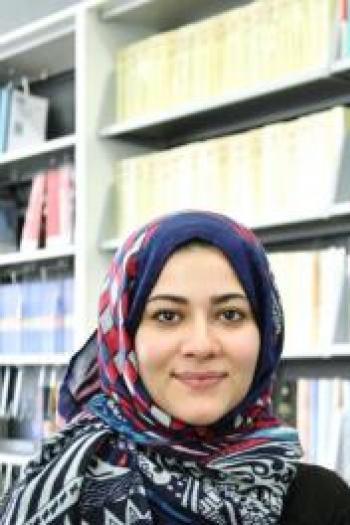
Sabrien Amrov
Sabrien Amrov is pursuing her Ph.D. in Human Geography at the University of Toronto. In 2013, she earned her master’s degree in International Relations, with Honours, from the University of Ottawa. Her MA thesis on the Security Sector Reform in the West Bank was funded by the Social Sciences and Humanities Research Council of Canada. In 2011, she earned her Honours Bachelors in Conflict Studies and Human Rights with a Minor in Arabic Language and Culture from the same university. Sabrien is a broadly published author who writes on topics such as security sector reform, security logic(s), international development and Canadian foreign policy in the Middle East. Her work has appeared in the New York Times, Middle East Monitor, Rabble and al-Shabaka Policy Network. She has done fieldwork in South Africa, Palestine, Israel, Jordan and Turkey. Her research currently focuses on fear, intimacy and everyday security practices in the Arab world.
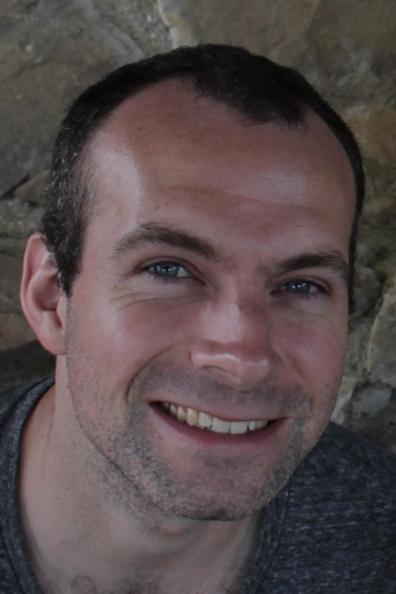
Conor Anderson
Conor is an alumnus of the International Development Studies co-op program (2012). Upon graduation, he worked at all levels of the Peruvian public sector as a volunteer with World University Service of Canada and Cuso International. Conor is now a a PhD candidate in the Department of Physical and Environmental Sciences at the University of Toronto Scarborough (UTSC). Conor’s research focuses on the impact of climate change on populations in the Peruvian Amazon. In particular, Conor is interested in the impacts of the changing global climate on hydrological extremes (floods and droughts) in the Amazon region, and the impacts of these extremes on forest structure, and human health and livelihoods of vulnerable populations in rainforest ecosystems. He conducts his research under a framework of open science.
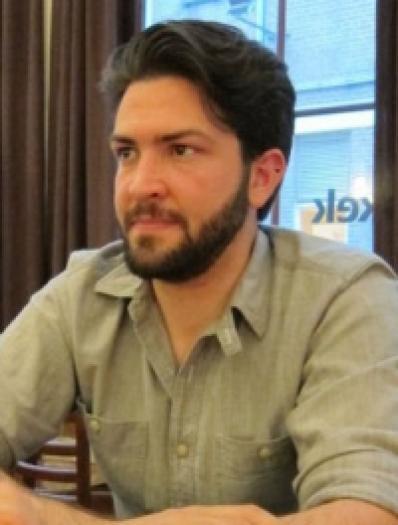
Zachary Anderson
Zachary Anderson is a PhD candidate in the Department of Geography and Planning at the University of Toronto. His doctoral research investigates the emergence of the 'green economy' and the politics of green growth in the province of East Kalimantan, Indonesia. He is particularly interested in the way that different actors are enrolled into projects of green growth leading to the creation of new social relations, including forms of land tenure and resource control. Before beginning his graduate work Zach worked as a research consultant for the Center for International Forestry Research (CIFOR) and as part of the Advancing Conservation in a Social Context (ACSC) initiative.
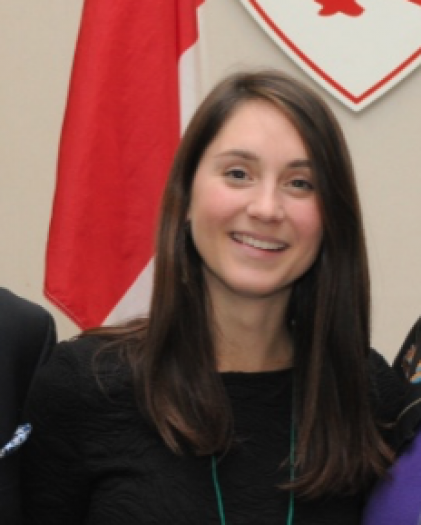
Sarah Archibald
Sarah loves exploring how micro-organisms, plants and humans can work together for greater food security. Her research with Dr. Marney Isaac and UTSC Integrative Agroecology Lab will collaborate with Centro Agronomico Tropical de Investigación y Enseñanza (CATIE), Costa Rica, and their long-term coffee agroforestry research site. Sarah's work will measure how farmers' biodiveristy practices impact the control of coffee leaf-rust, a disease that threatens coffee-production and therefore coffee growers.
Sarah is passionate about this research as coffee leaf-rust is causing increasing significant damage to farmers across the Americas and Africa with climate change. This research aims to support farmers in utilizing low-chemical input systems, particularly in tropical environments, that face increased pest outbreaks and contribute to The Integrative Agroecology Lab’s vital research.

Ozlem Aslan
Özlem Aslan is a PhD candidate at the Department of Political Science and a collaborative student at the Women and Gender Studies at the University of Toronto. Her doctoral research adopts an interdisciplinary approach in an attempt to analyze the political implications of development projects and resistances against them in the context of Turkey. Based on her field work in Artvin, Turkey, she traces the ways place becomes a ground for political claim-making in the context of resistances against the run-of-the-river hydropower projects in Turkey. Her project received Globalink Research Award in and Ontario Graduate Scholarship in 2014 and doctoral research award from the International Development and Research Centre in 2015. Özlem Aslan received her masters degree from the Department of Political Science, Boğaaziçi University in Turkey. Her master project was on the politics of motherhood which became a contested site as a result of the ongoing war in Turkey. She also worked the 5th World Water Forum as a member of the organizational committee in 2008. She worked closely with women’s organizations with regard to gender relations and water rights during the forum. She also worked in the Association for Support and Training of Women Candidates in Istanbul, Turkey between 2008 and 2009 and has been one of the editors of the journal Feminist Approaches in Culture and Politics since its foundation in 2006. . Her articles are published in Sudan Sebepler: Türkiye’de Neoliberal Su-Enerji Politikaları ve Direnişleri, edited by Cemil Aksu, Sinan Erensu and Erdem Evren, Feminist Approaches in Culture and Politics and History of Present.
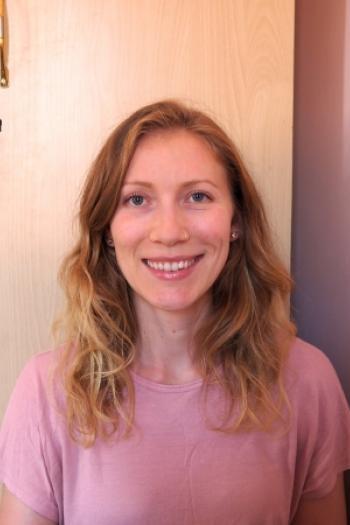
Courtney Balaz-Munn
Courtney Balaz-Munn is a master’s student in the Department of Geography and Planning at the University of Toronto. Her research interests include the discourse and practice of transitional justice and reconciliation processes, geographies of disaster and development, and nation-building as a state project. Her thesis research explores media and expert discourses of state-led post-earthquake reconstruction and post-conflict reconciliation processes in Nepal. Prior to beginning her MA, Courtney worked for variety of government organizations and post-secondary institutions. She has also completed a certificate in editing and works on freelance editing projects.

Joaquín Bardallo Bandera
Joaquín Bardallo Bandera is a second year PhD student in the Department of Political Science and the School of the Environment at the University of Toronto. His areas of focus are comparative politics and international development. His main research area is natural resource dependence and its significance for the Latin American region. Joaquín is the co-founder and current president of the Latin American Political Science Students Association (LAPSSA), the vice-president for the Youth Canadian Association for International Development (YCAID), the vice-president of the Graduate Environmental Students’ Association (GESA), as well as, the head representative for the Comparative Politics Section of the Graduate Association of Students of Political Science (GASPS).
He received the Human Rights Research and Education Center’s Gordon F. Henderson Scholarship at the master level for 2013-2014. He holds a Bachelor of Arts degree from the University of Alberta in Political Science and Combined Languages, as well as, a Certificate in Globalization and Governance from the same university. He received a Full International Scholarship from the University of Ottawa to complete his master’s degree that focused in the strengths and weaknesses of the Rule of Law in Latin America. He has also been closely involved in several projects regarding human rights issues including PORVENIR, Amnesty International, as well as, being part and parcel of the Environmental Governance Lab here at the University of Toronto.
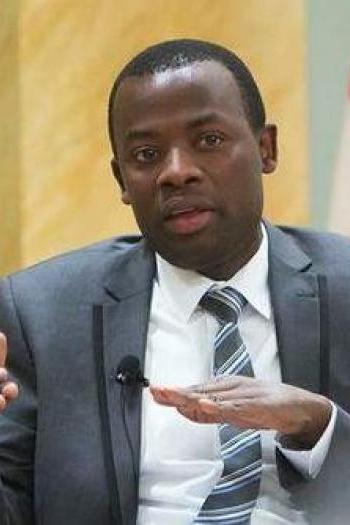
Gerald Bareebe
Gerald Bareebe is a 2013-2017 Trudeau Scholar and Ph.D. Candidate in the Department of Political Science, University of Toronto. Before starting his doctoral studies, Gerald was a national political reporter at the Daily Monitor, Uganda’s largest and most influential independent newspaper. He holds a bachelor’s degree in Journalism and Communications (Makerere University), a master’s degree in International Relations (Makerere University), and an advanced master’s degree in Governance and Development (University of Antwerp). His Ph.D. research is focused on the convergence between the military and elite interests in post-conflict state reconstruction, regime consolidation and nation-building in Uganda and Rwanda.
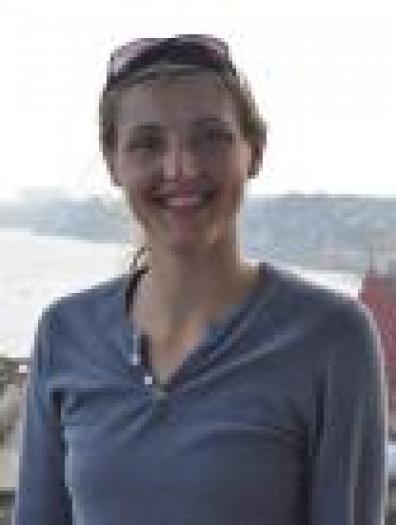
Kira Borden
I am a PhD candidate in the Department of Geography & Planning and hold an MSc degree in Forestry. My research interests pertain to the ecology of agricultural landscapes that feature trees (agroforestry). I have carried out research on agroforestry systems in Canada, the Caribbean, and West Africa.
My current research is based in Ghana where one of the main export crops, cocoa, is produced from trees (Theobroma cacao) that are often grown below the canopy of larger shade trees. These more diversified agroecosystems can provide additional sources of income for (typically small-holder) farmers and there are increasing efforts to financially compensate farmers who enhance or maintain certain ecological services on their farms (e.g. biodiversity protection) through the planting of shade trees. While my research specifically focuses on plant-soil dynamics in Ghanaian cocoa agroforestry systems, I am very interested in how these ecological understandings relate to concepts and questions of rural livelihoods and sustainable development for the region.
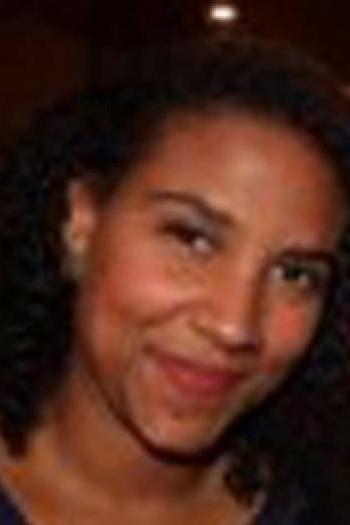
Brianna Botchwey
"Brianna Scrimshaw Botchwey is a PhD student and SSHRC Canada Graduate Scholar at the University of Toronto in Political Science and Environmental Studies. Her dissertation, tentatively titled "Global Development Goals and Bilateral Aid", examines the reasons for which major OECD bilateral donors respond differently to global development goals such as the Millennium Development Goals and the Sustainable Development Goals. Through this research she hopes to understand the domestic political processes that shape responses to governance by global goals.
She also conducts research for the Munk School's Environmental Governance Lab on renewable energy partnerships and how these contribute to decarbonization in the Global South. In addition, to her research work, Brianna has worked as an International Development Officer for Global Affairs Canada in the Food Security and Environmental Sustainability Section, as well as with the Afghanistan program.
Brianna received her MPhil in International Relations and Politics from the University of Cambridge where she completed a distinction-awarded dissertation: “Analysing China’s Riparian Relations in Mainland Southeast Asia” and a BA from the University of British Columbia in International Relations and Asian Language and Culture.
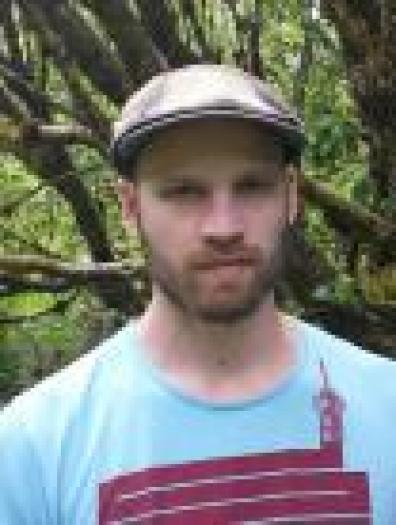
Michael Braun
Michael is interested in how popular politics and activism influence government policies, particularly with regards to reducing inequality and increasing opportunities for young people. His dissertation research project looks at how social movement activists and political parties are mobilizing around these issues in contemporary South Africa.
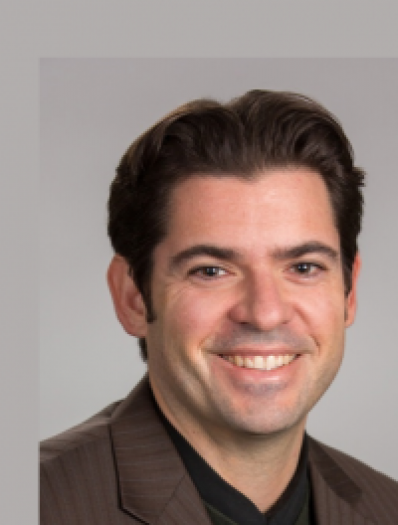
Scott Clerk
Scott is a Ph.D. student in Higher Education, with a specialization in Comparative, International, and Development Education, at the Ontario Institute for Studies in Education (OISE). His current research focuses on how higher education systems and institutions in the least developed countries engage in international cooperation, with a particular focus on Latin America. He is currently an RA for a SSHRC-funded project on the expansion of private higher education around the world. His broader research interests include higher education internationalization and regionalization, patterns of academic mobility, and comparative higher education policy. Scott is currently Manager, International Education, at the University of Ontario Institute of Technology. He holds an M.A. in Political Economy of Development from the University of Toronto, and a B.A. Honours in Global Development Studies and Economics from Queen’s University.
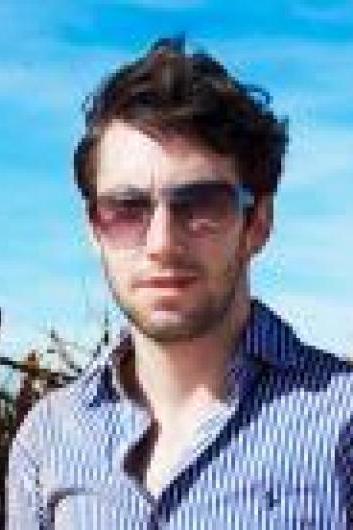
Karol Czuba
Karol Czuba is a doctoral candidate (ABD) in the Department of Political Science at the University of Toronto. His PhD project explores the microfoundations of state-making through the lens of the strategic interactions between political agents involved in the process of expansion of state power in the dryland areas of Ethiopia, Kenya, and Uganda.
Karol’s substantive research focuses on state-making, African politics (especially East Africa and the Horn), and agropastoralist and pastoralist societies. His methodological interests include experiments, game theory, causal mechanisms, and microfoundations.
Karol was previously a development professional and worked for BRAC and the International Organization for Migration in Uganda and for the International Growth Centre in South Sudan.
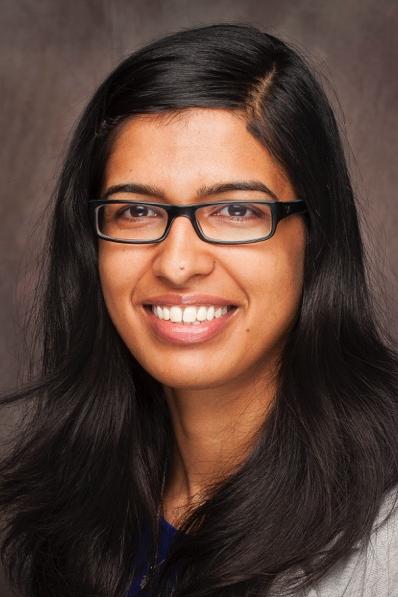
Aden Dur-e-Aden
Aden is a PhD student in the Department of Political Science at University of Toronto. She is a recipient of the SSHRC CGS Doctoral Scholarship, and is also a Junior Research Affiliate with The Canadian Network for Research on Terrorism, Security, and Society (TSAS). Her major fields are International Relations and Comparative Politics. Her PhD research focuses on comparing the recruits and non-recruits within the far-right and Islamist organizations in Canada through a gendered lens. She obtained her MA in Political Science from UBC, and her MA thesis was titled: “To drone or not to drone: A comparative analysis of the effectiveness of the US’s drone policy of targeted killing in the contexts of Pakistan and Yemen.” She also holds a BA in Political Science from UBC.
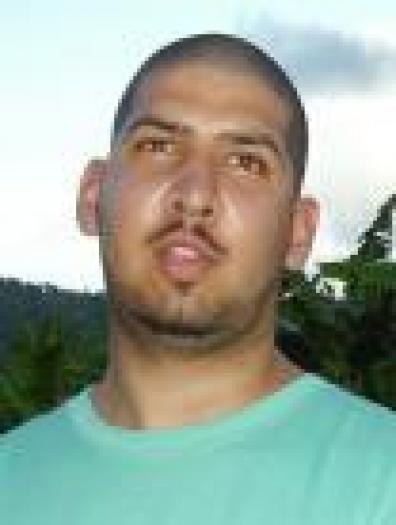
Kevin Edmonds
Kevin Edmonds is a PhD student in Political Science, whose research examines the connection between trade liberalization, the decline of the banana trade and the rise of marijuana cultivation/trafficking in the Eastern Caribbean islands of St. Lucia and St. Vincent. His other areas of interest include the political economy of the Caribbean and the drug trade, agricultural policy, alternative development strategies and the history of military intervention and economic destabilization in the Caribbean.
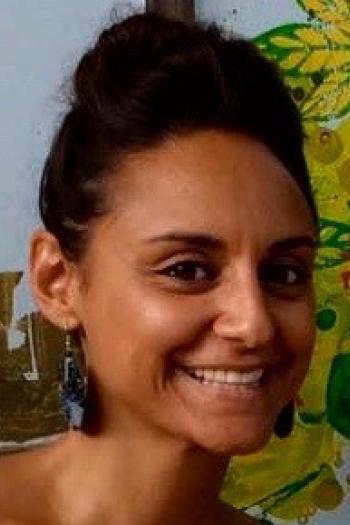
Nadia Fazal
Nadia Fazal is a PhD Candidate in Social and Behavioural Health Sciences at the Dalla Lana School of Public Health, and is part of the Collaborative Doctoral Program in Global Health at the University of Toronto. Nadia identifies as a researcher, activist, artist, community development worker, health promoter, and global health practitioner. Her doctoral research explores the role of community arts engagement in health promotion in the context of Goma, Eastern Congo. As part of her research, Nadia is conducting a secondary data analysis of the qualitative data that were generated for the purposes of the film ‘Art, For What?’; Nadia directed and co-produced this film with a Congolese non-governmental organization (NGO) called Yole!Africa. In this secondary analysis she explores the perceptions of local artists in Goma about how they are negotiating the content of their artistic expression with international NGOs, and the ways in which this is influencing the capacity of local communities to effect positive change. In the second part of her doctoral research, Nadia is conducting a secondary data analysis of qualitative data that were generated from a community art project with adolescent girls in Goma, which was implemented by an international NGO called Colors of Connection (CC). In this case study analysis, Nadia focuses on CC’s participatory and assets-focused approaches to community arts engagement, exploring how these approaches play a role in the negotiations of the content of artistic expression between CC and the local community, and how this can influence the local community to effect positive change.
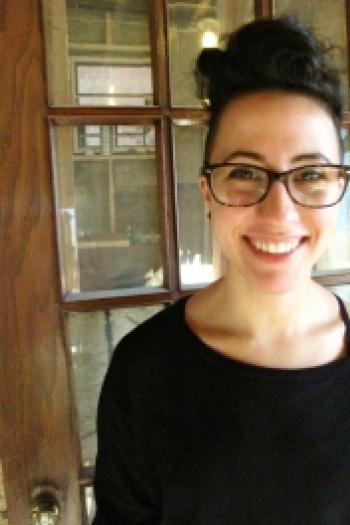
Stephanie Gagliardi
Stephanie Gagliardi is a second year PhD student in the Department of Physical and Environmental Sciences at the University of Toronto, Scarborough, with an MSc degree in Physical Geography. She is interested in small-scale sustainable and diversified farming practices, especially those guided by agroecological principles. Her current doctoral research is based in Central America, focussing on multi-species coffee systems that incorporate trees (agroforestry), which have enhanced ecosystem and economic benefits. She is particularly interested in how on-farm management decisions affect ecosystem functioning, such as nutrient cycling and disease suppression. She hopes that her work will lead to enhanced small-scale farm productivity and increased adoption of sustainable farming practices.

Marie Gagné
Marie Gagné is a PhD candidate in the Department of Political Science at the University of Toronto, specializing in comparative politics and development studies. Her dissertation examines domestic factors that influence how large-scale land acquisitions unfold in Senegal with a focus on regional variations. Her other research interests include determinants of political violence, consequences of natural resource extraction, and rights of indigenous peoples. Her doctoral work has been funded by the Social Sciences and Humanities Research Council of Canada (SSHRC), the Ontario Graduate Scholarship (OGS) Program, and the International Development Research Center (IDRC).
Marie is a research affiliate at Initiative Prospective Agricole et Rurale (IPAR) in Dakar while conducting fieldwork in Senegal. She has previously carried out a comprehensive study on the cooperative movement in Senegal financed by the former Canadian International Development Agency (CIDA). This experience was fundamental in stimulating her interest in African politics and questions of development. Prior to her stay in Senegal, Marie earned a bachelor’s and master’s degrees in sociology from Laval University in Quebec City.
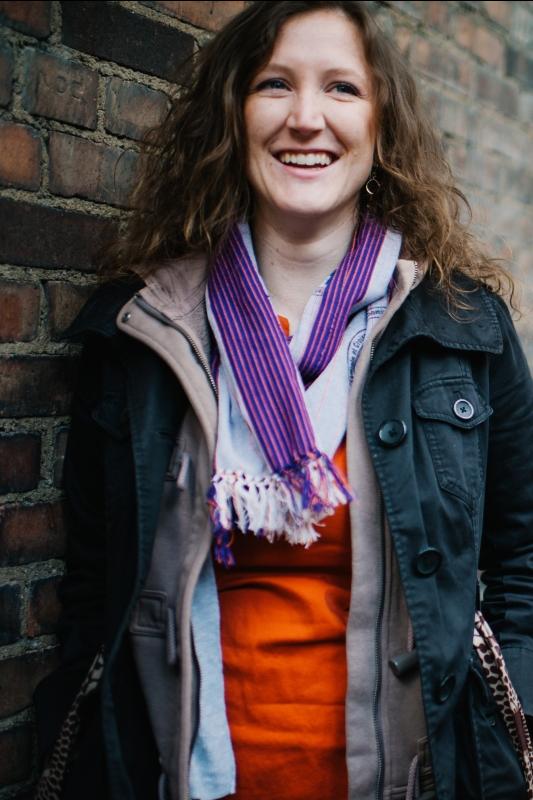
Miriam Hird-Younger
Miriam is a researcher and practitioner in the field of international development with a focus on participatory development, food and agricultural systems, gender and youth leadership. She is a PhD Candidate in the Anthropology Department, collaborative with Women and Gender Studies, at the University of Toronto. Miriam’s doctoral research critically examines trust-based policy discourses and how trust and mistrust are negotiated within the everyday operations and partnerships in development projects in Ghana. From 2011-2014, Miriam worked with Engineers Without Borders Canada (EWB), managing a development program that partnered with Ghana’s agricultural colleges to strengthen the experiential and practical education opportunities that they offered. Miriam is a Vanier Scholar and an alumni Junior Fellow of Massey College. Miriam graduated with a Bachelor Honours from the University of Ottawa’s International Development and Global Studies program in 2011 and with a Masters in Sociology from York University in 2016. Miriam can be reached at: miriam.hird.younger@mail.utoronto.ca
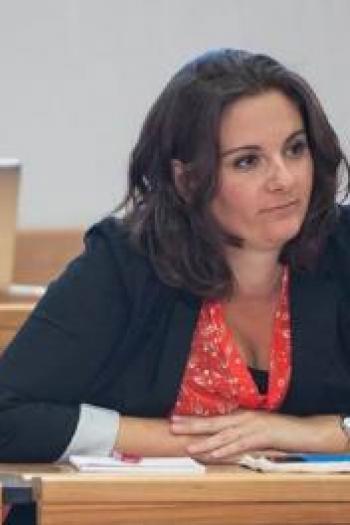
Joanna Kocsis
Joanna Kocsis specializes in participatory research methods and innovative program evaluation. She is currently a PhD student in the department of Planning at the University of Toronto and the Evaluation Specialist for the Urban Climate Resilience in Southeast Asia project (IDRC/SSHRC). Her research inquires into the world of international development from many angles, from the learning practices of grantmakers to the psychological impacts of programming on target ‘beneficiaries’. She is currently focused on learning from participatory research with marginalized groups, offering opportunities for reflection and supporting social learning. Kocsis was selected as the Research Award Recipient for the International Development Research Centre’s (IDRC) Innovation for Inclusive Growth Program in 2012 and worked as the Professional Development Awardee for IDRC’s Evaluation team in 2014. Both her MSc. in International Rural Planning and Development at the University of Guelph, and her PhD. in Planning at U of T’s St. George Campus were awarded SSHRC funding.

Chi Kwok
Chi Kwok is a PhD student in the Department of Political Science. His research interests include theories of social justice, workplace democracy, social movement theories, and Hong Kong studies. His doctoral research focuses on different forms of control in the modern workplace, looking specifically into the internal contradictions between liberal democracy and the socio-psychological aspect of the contemporary workplace. His work has appeared in journals such as China Perspectives, Discovery Society, and Civilitas. He holds a Master degree from the University of Toronto and a Bachelor degree (1st Class) from the Chinese University of Hong Kong.
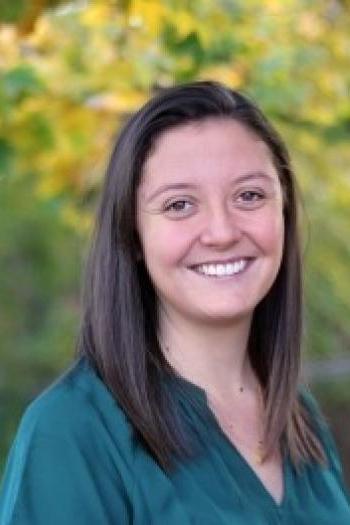
Jennifer Langill
Jennifer Langill is a PhD student in Human Geography. Her current research focuses on ethnic minority livelihoods in the uplands of Northern Thailand. She is conducting a critical feminist analysis of Hmong livelihood change over three generations in the context of changing state intervention, increasing environmental uncertainty, and market intensification. She has previously conducted independent research on lived experience of severe flooding in the Peruvian Amazon and educational migrants in northern Laos. Jennifer has nearly 10 years of international project management experience. She holds a BAH in Global Development Studies from Queen’s University, an MA in Human Geography from the University of Toronto, and certificates in Environmental Studies, International Studies, and Spanish Competency.
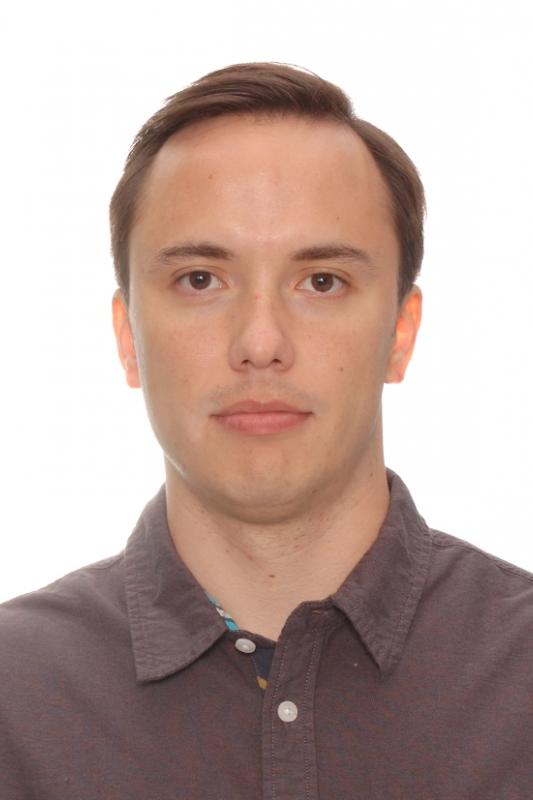
Jon Mathias
Jon Paul is a Canadian Mexican PhD student in Geography at the University of Toronto. He is an alumnus of the Political Economy of International Development program (2016) also at the University of Toronto. Previously, he completed the undergraduate program in International Relations from the Iberoamerican University (Universidad Iberoamericana, UIA) in Mexico City. Following graduation, he worked for the Organization of Iberoamerican States (OEI) as part of a gender equity project for public secondary schools in Mexico. He also worked for the National Institute of Statistics and Geography (INEGI) in Mexico, where he published several books on government statistics.
Currently, his research focuses on resource struggles in Mexico City’s peri-urban communities. He is specifically interested in the role of hegemonic discourse on race, class and gender in shaping uneven resource distribution in the city’s peripheral communities.
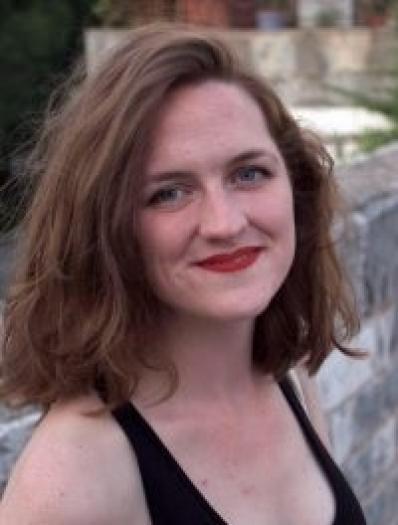
Zannah Matson
Zannah Mae Matson is a PhD Student in Human Geography at the University of Toronto where her research focuses on the construction of territory through highway infrastructure development and counterinsurgency doctrine in Colombia. She is a course instructor in Urban Planning and Design at the Ryerson School of Urban and Regional Planning and has previously been an instructor at the University of Toronto Department of Geography and Planning.
In professional practice, she has worked with Public Work, MassLBP, and OPSYS
Landscape Infrastructure Lab, most recently as Project Manager and Lead Exhibition Designer for the Canada Pavilion at the Venice 2016 Biennale Architettura. Matson holds a Masters of Landscape Architecture from the Harvard Graduate School of Design.
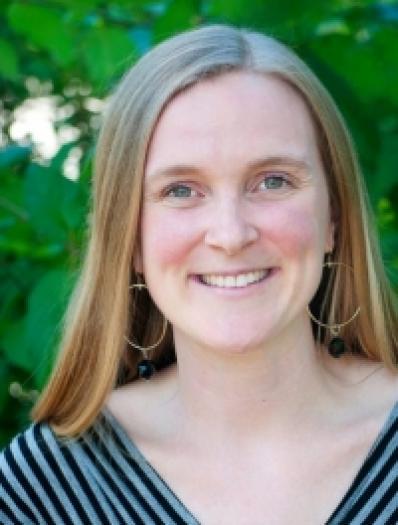
Corey McAuliffe
Corey McAuliffe is a PhD Candidate in the Social and Behavioural Health Sciences Department at the Dalla Lana School of Public Health, University of Toronto. She is an Ontario Trillium Scholar and a Fellow in the Collaborative Specialization in Global Health. She received her Master of Public Health degree from the Rollins School of Public Health at Emory University in 2011, with a concentration in global health and public nutrition. Corey has over eleven years of global and domestic work experience with institutional and nongovernmental organizations, including extensive time spent teaching, facilitating, and developing curriculum. Before coming to the University of Toronto, she taught graduate level courses in global health, food policy, and public health as an adjunct faculty member at the National University of Natural Medicine. Her current research uses a phenomenological approach to better understand the lived experience of North American female graduate students in global health practice.
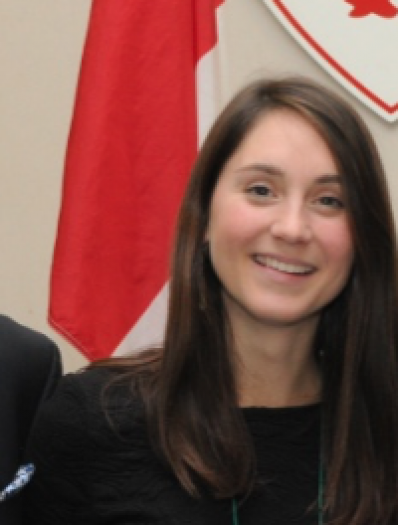
Sarah McGill
Sarah loves exploring how micro-organisms, plants and humans can work together for greater food security. Her research with Dr. Marney Isaac and UTSC Integrative Agroecology Lab will collaborate with Centro Agronomico Tropical de Investigación y Enseñanza (CATIE), Costa Rica, and their long-term coffee agroforestry research site. Sarah's work will measure how farmers' biodiveristy practices impact the control of coffee leaf-rust, a disease that threatens coffee-production and therefore coffee growers.
Sarah is passionate about this research as coffee leaf-rust is causing increasing significant damage to farmers across the Americas and Africa with climate change. This research aims to support farmers in utilizing low-chemical input systems, particularly in tropical environments, that face increased pest outbreaks and contribute to The Integrative Agroecology Lab’s vital research.
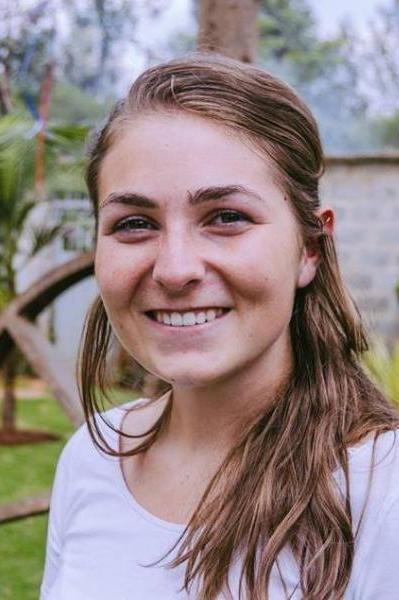
Emma Mew
Emma is a second year student in the Master of Public Health Epidemiology program at the Dalla Lana School of Public Health and is part of the Aboriginal Health Collaborative Program and the Global Health Emphasis. She is interested in social justice through the promotion of global health equity. Prior to her graduate training, she completed a six-month internship with the World Health Organization working on global suicide prevention and also worked in Tanzania assisting the Maasai Women Development Organization develop a culturally-sensitive and community-run reproductive health program. More recently, she has been interested in health equity among Canadian Indigenous peoples and has had the privilege to collaborate with First Nations, Inuit and Métis on a variety of Indigenous-led epidemiological projects, including those in the field of mental health and emergency medical service delivery. For a list of publications, please visit her Google Scholar profile.
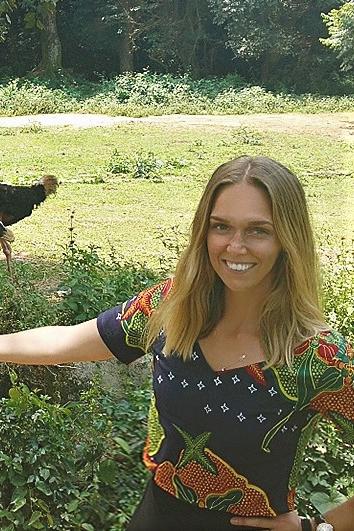
Sarah O'Sullivan
Sarah is a PhD Candidate in the Department of Anthropology at the University of Toronto and has been a CCDS Graduate Associate since 2015. She specializes in deep, long term ethnography and has recently returned from 14 months of fieldwork in northern Uganda, which was funded by the Wenner-Gren Foundation. Sarah’s research explores the particularities and social experiences of people living with HIV or AIDS in post-conflict northern Uganda in an era of both accessible, life-giving treatment (ARVs) and an oversaturation of development aid. With the recent surge in popularity of village savings and loans associations (VSLAs), her project examines the particularities of these groups, what it means to be a “healthy” HIV-positive member, and the accompanying behavioural expectations placed on them. Her project seeks to reconceptualise the concept of stigma and explore more systematically the multifaceted ways in which the social life of HIV and the social life of development aid interpenetrate in a post-conflict context of persistent aid dependency and free and available HIV treatment.
Sarah has been conducting research in Uganda for various organizations and as a graduate student since 2011. She completed an MA in Anthropology with a specialization in African Studies at Carleton University in 2014. She has also held the position of Visiting Scholar in Gulu University’s Master’s of Medical Anthropology program in 2016 where she lectured on the Anthropology of Infectious Disease.
Her plan for 2018 is to return to Uganda to conduct follow-up research. She’ll get to writing her dissertation eventually.
Profile: http://www.wennergren.org/grantees/osullivan-sarah-marie
Email: s.osullivan@mail.utoronto.ca
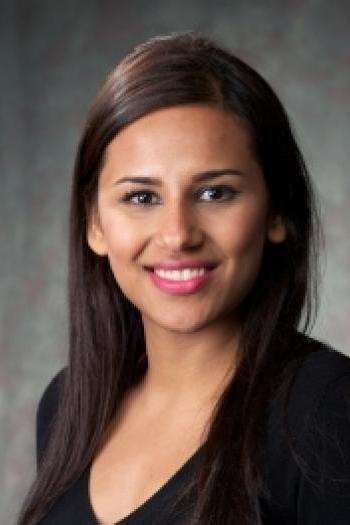
Nidhi Panwar
Nidhi Panwar is a first year PhD student pursuing a collaborative program in Political Science and South Asian Studies. Her research interests focus on security issues in South Asia, specifically the conceptualization of counterterrorism and human rights implications analyzed through the lens of Critical Terrorism Studies. Nidhi recently completed an MA in Political Science at the University of Calgary where her project on homegrown terrorism in India was funded by the CGS-M, CGS Michael Smith Foreign Study Supplement, Mitacs Globalink Research Award and the Shastri Student Internship Project in Aid. Before this, she completed an MA in International Studies and a BA in Communications and International Studies at the Simon Fraser University. Nidhi is an active volunteer of the National Youth Engagement Committee at the Canadian Red Cross and a Co-founder and Director of A Thousand Metres Above (ATMA), a Canadian non-profit organization that supports grassroots community organizations in rural Himalayas.

Shozab Raza
Shozab Raza is a first-year PhD student in anthropology. His research interests include capitalism, agrarian political economy, social & political movements, and social theory. His PhD research proposes to examine the relationship between agrarian transformations, ideology and politics in central Punjab, Pakistan. He can be reached at: shozab.raza@mail.utoronto.ca

Shewit Rezene
Shewit is a master’s student in the Department of Political Science at the University of Toronto, specializing in Political Economy of International Development. Her current research focuses on Path-Dependence in Development and the Determinants of Economic Growth in post-colonial African states, and more specifically in newly independent and war-torn State of Eritrea. Her other research interests include: Historical Institutionalism and Politics of Growth in Developing countries; Political Economy of Knowledge Production, Neocolonialism and Neoliberal Globalization in present-day Africa.

Sarah Rich-Zendel
I am a Ph.D. candidate in the Political Science department at the University of Toronto. My dissertation research looks at the interaction between local and global articulations of sexual norms with a focus on Nepal. In addition to completing my dissertation, I am also managing a research project in Nepal on human trafficking and unsafe migration with Vanderbilt University and the Stanford Centre on Democracy, Development and Rule of Law.

Nicolas Saldias
Nicolas Saldias is a PhD Candidate in the Department of Political Science at the University of Toronto. His research focuses on the political economy of postneoliberalism, with a particular emphasis on labour policy and income inequality. His dissertation focuses on redistributive labour policies in Argentina and Uruguay after the financial crisis of 2001, and the election of progressive governments in 2003-04. He recently completed fieldwork in Argentina and Uruguay and is currently in the process of writing his dissertation. Nicolas is also a co-founder and vice president of the Latin American Political Science Student Association (LAPSSA) that promotes Latin American politics at the University of Toronto and in the broader Canadian context. You can visit his personal website here: nicolassaldias.com
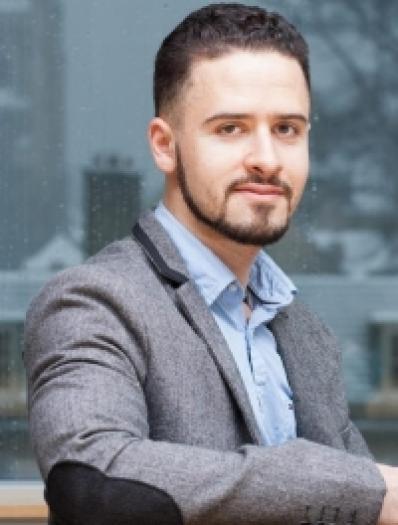
Igor Shoikhedbrod
Igor Shoikhedbrod specializes in political theory and development. Igor’s research interests cut across themes in critical political thought, legal theory, and political economy. His research project is concerned with the problems of economic inequality and domination in liberal democratic societies and their implications for discourses surrounding rights, distributive justice, and emancipation. Igor is also interested in the politics of economic transition in the former Soviet Union & CIS, as well popular movements against neoliberalism in the twenty-first century.
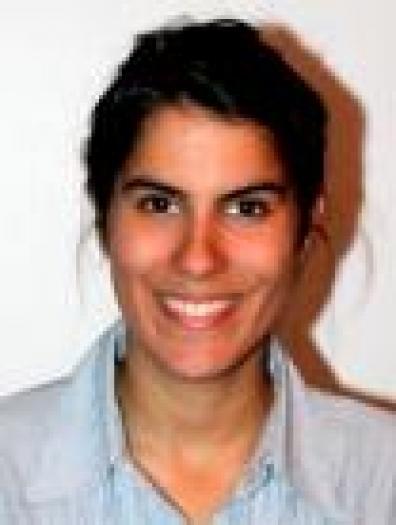
Maïka Sondarjee
Maïka Sondarjee is a PhD candidate in Political Science at the University of Toronto. She holds a Master’s degree in Political Science from the University of Montreal, and a BA in Journalism from l’UQAM. She also participated in international summer schools at the University of Geneva and at the Berlin Graduate School of Social Sciences (BGSS). Her research interests concern international development and human rights’ norms, the SAPs and the PRSPs, international organizations, IR theory, international practices, and development issues in Latin America and India. She published multiple academic book chapters, op-eds and articles. After working for Radio-Canada as a journalist, Maïka worked as an international consultant in Burkina Faso with Oxfam Québec (2010), in Bolivia with the Canadian NGO Socodevi (2012), and in India with the Mother Teresa Missionaries of Charity (2014). Her doctoral research is supported by the Social Sciences and Humanities Research Council of Canada (SSHRC).
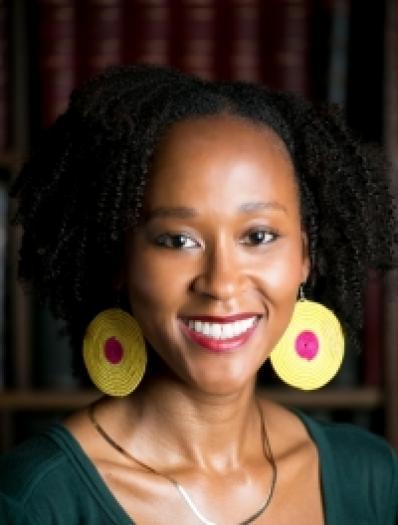
Lahoma Thomas
Lahoma Thomas is a PhD Candidate in the Department of Political Science at the University of Toronto. Her research examines how criminal organizations acquire and sustain social authority and legitimacy at the local level by investigating the relationship between criminal organizations and residents. Her research and related publications have covered a broad range of topics including the expression of sexual and gender-based violence in settings of post-conflict, anti-oppression, anti-racism, and human rights. Prior to arriving at University of Toronto Lahoma worked as a social worker and consultant, her work concentrated on addressing these issues at the systemic, community and individual level through policy development, advocacy, training, and counselling.
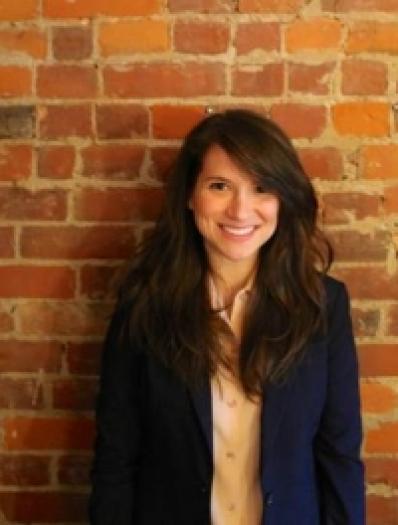
Vanessa van den Boogaard
Vanessa is a PhD candidate in Political Science at the University of Toronto, specializing in Comparative Politics and Development Studies. Her doctoral research explores the dynamics of non-state taxation in the periphery of fragile and conflict-affected states in order to better understand the connections between taxation, citizenship, and state building.
She has led multi-method research projects in the Democratic Republic of the Congo, Sierra Leone, Sudan, South Sudan, Somalia, and Ghana. She has worked with the International Centre for Tax and Development, the World Bank, the Institute of Development Studies, the Open Society Foundation, and the Danish Refugee Council. She is currently a Fellow at the Institute of Municipal Finance and Governance and a Junior Fellow at Massey College.

Christopher Webb
Christopher Webb is a PhD Candidate in the Department of Geography and Planning at the University of Toronto. He holds an MA in Development Studies form York University and a BA in Journalism and Communications from the University of Winnipeg. He has written for a range of academic and popular publications, including the Review of African Political Economy, theJournal of Peasant Studies, Jacobin Magazine, and the Canadian Journal of Development Studies. He is an editor for Canadian Dimension Magazine and Nokoko: Carleton University's Journal of African Studies. His current research looks at how youth living on the periphery of post-apartheid cities like Cape Town construct livelihoods in the context of high rates of formal sector unemployment. In addition his research explores new forms of political agency and expression among youth, including the recent rise of student and service delivery protests. Broadly he is interested in political economy, urban studies, Marxism and labour geography.
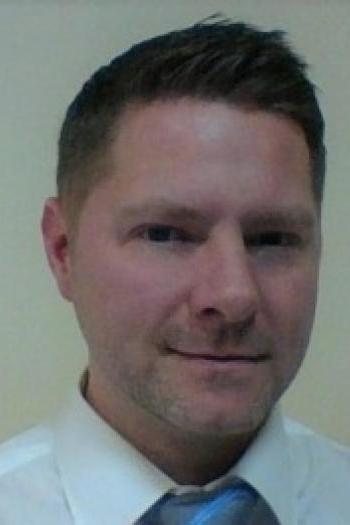
Patrick Whelan
Patrick is pursuing an MA Political Theory at the University of Toronto with plans for a PhD afterwards. He has a diverse background, having lived in 14 countries on six continents, while traveling many more. He has been a Canadian military pilot and administrative officer; a senior staff member and policy maker of a K-12 school in Mongolia; and a teacher of high school math, sciences, health, and social sciences in China. He has also been an NGO fundraiser in Sydney, Australia; consulted for an NGO helping victims of sex trafficking in Moscow, Russia; and interned with the Mafia, Camorra and Criminal Networks research group at the Università di Napoli Federico II in Naples, Italy. Currently, Patrick is the MA representative for the Graduate Association of Students in Political Science at the University of Toronto, and a Frédéric Bastiat Fellow with the Mercatus Center at George Mason University. Patrick’s primary interest is in human development. He received his MA (Distinction) in Population and Development from the Higher School of Economics in Moscow where he established an irregular migration research group, and his thesis examined the institutionalization and embeddedness of sex trafficking in Nigeria. Dissatisfied with development theory to accurately represent or facilitate human development, he is switching streams to political theory, so he can hopefully contribute to development theory, beginning with revitalizing and restructuring the capability approach.
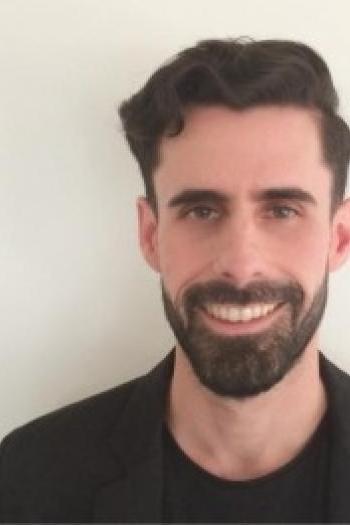
Ryan Whitney
Ryan is a PhD Candidate in Planning in the Department of Geography and Planning at the University of Toronto. His doctoral research explores how urban planning ‘best practices’ are adopted, legitimized, and contested through local and international networks of knowledge in Mexico City and Latin America. Specifically, he is focused on how new forms of municipal governance, including emerging urban planning departments, legitimize some urban planning policies and ideas over others as solutions to local planning issues. Prior to starting his PhD, Ryan was an urban sustainability planner who worked on the adoption of policy to support safer cities for cyclists and pedestrians in a variety of international contexts such as Canada, the United States, Tanzania, and Mexico. He has a MSc in Geography, Urban and Environmental Studies from Concordia University in Montreal. His doctoral research has been funded through an Ontario Graduate Scholarship (OGS) and as well as through the Secretaría de Relaciones Exteriores [Department of Foreign Affairs] in Mexico.
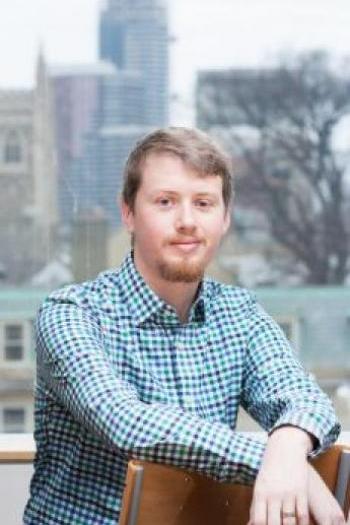
Mark Winward
Mark Winward is a PhD Candidate in Political Science at the University of Toronto. His research is primarily focused on sub-state dynamics of violence during genocide and politicide. He is especially interested the relationship between security forces and civilian organizations for facilitating violence and killing at the local level. Mark’s dissertation focuses on the cause and influence of these civil-military relationships during the Indonesian Mass Killings of 1965-66. His research touches on a wide variety of topics, including state-society relations, the role of the military in post-revolutionary states, and the ability of civilian organizations to capture state policy from below. His doctoral work has been funded by the Ontario Graduate Scholarship (OGS), The David Chu Program in Asia-Pacific Studies, and the Trudeau Center for Peace, Conflict and Justice.

Lusha Zhou
Lusha's journey before University of Toronto spanned four continents, and is partly why she is a geographer at heart. For her master's, she has focused on green infrastructure, which are landscapes that facilitate some ecological function (typically drainage to reduce stormwater runoff, or protection against soil erosion). She wrote recommendations for the City of Toronto on consultation and outreach for green infrastructure projects. For her master's research, she evaluated green infrastructure resources in Lào Cai, Vietnam, and their potential to balance urbanization pressures and climate change impacts. Lusha holds a BA from Dartmouth College, where she studied geography, computer science, and ethics. At Dartmouth, she was a Rockefeller Leadership Fellow, 1 of 24 selected student leaders from the class of 2013. Her prior research projects include the Vietnamese model minority myth in Czech Republic and urban heat island mitigation in Los Angeles. She has also worked as a research assistant on soil carbon loss, irrigation in New Mexico, water insecurity in Xinjiang, China, and gentrification impacts on health in New York city.